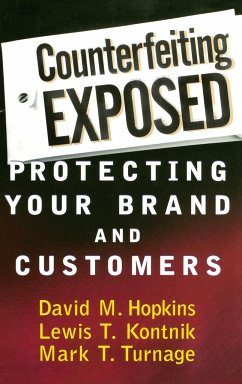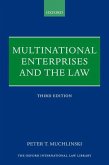This book provides an overview of the complex subject of counterfeiting and guidance on how to protect products and brands. Compelling stories are added throughout the text, such as how 30 people died from malaria in Cambodia in April, 2000 because they were treated with fake mefloquine or how Glad trash bags have been faked as part of a scheme to launder drug money. It provides legal remedies, authentication guidance, and digital measures companies can use to fight the effects of counterfeiting on their bottom line.
A clear and compelling guide to the complex world of counterfeiting
This book provides readers with an overview of the complex subject of counterfeiting in the twenty-first century-not the traditional notion of counterfeiting fake currency, but the counterfeiting of luxury goods, pharmaceuticals, engine parts, etc. Filled with compelling stories such as how Glad trash bags have been faked as part of a scheme to launder drug money, this book offers real-world examples of how counterfeiting can occur and how readers can protect their products and brands from it. Leaving no stone unturned, this valuable resource also provides legal remedies, authentication guidance, and digital measures companies can use to fight the effects of counterfeiting on their bottom line.
David M. Hopkins (Denver, CO) is Director of International Business Programs in the Daniels College of Business at the University of Denver. Lewis T. Kontnik (Greenwood Village, CO) is principal and founder of Reconnaissance International, the publisher of Authentication News, an international newsletter that covers counterfeiting prevention issues.
Mark Turnage (Denver, CO) is the CEO of Applied Optical Technologies PLC, one of the largest providers of anti-counterfeiting technology to governments and companies worldwide.
A clear and compelling guide to the complex world of counterfeiting
This book provides readers with an overview of the complex subject of counterfeiting in the twenty-first century-not the traditional notion of counterfeiting fake currency, but the counterfeiting of luxury goods, pharmaceuticals, engine parts, etc. Filled with compelling stories such as how Glad trash bags have been faked as part of a scheme to launder drug money, this book offers real-world examples of how counterfeiting can occur and how readers can protect their products and brands from it. Leaving no stone unturned, this valuable resource also provides legal remedies, authentication guidance, and digital measures companies can use to fight the effects of counterfeiting on their bottom line.
David M. Hopkins (Denver, CO) is Director of International Business Programs in the Daniels College of Business at the University of Denver. Lewis T. Kontnik (Greenwood Village, CO) is principal and founder of Reconnaissance International, the publisher of Authentication News, an international newsletter that covers counterfeiting prevention issues.
Mark Turnage (Denver, CO) is the CEO of Applied Optical Technologies PLC, one of the largest providers of anti-counterfeiting technology to governments and companies worldwide.








